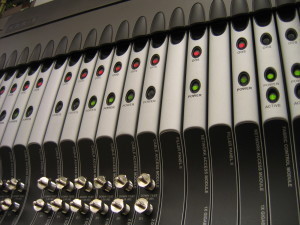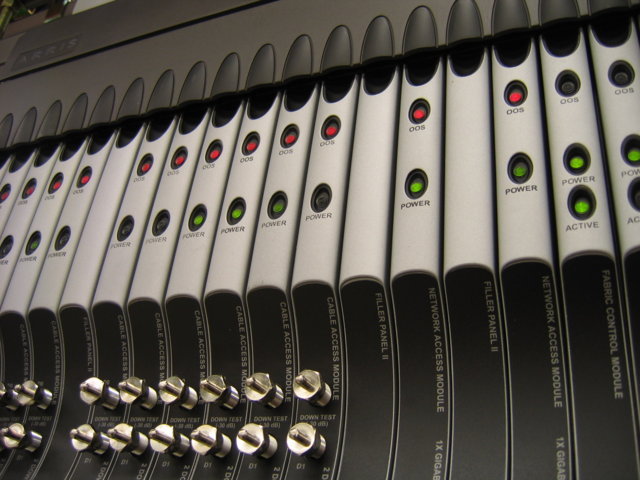 Fierce debate is swirling around High Frequency Trading (HFT) on Wall Street and business websites thanks to Flash Boys: A Wall Street Revolt, the latest book by bestselling author Michael Lewis (of Liar’s Poker fame). Flash Boys asserts that the U.S. stock market is rigged in favour of HFT firms, which are using their advantage to extract billions from investors.
Fierce debate is swirling around High Frequency Trading (HFT) on Wall Street and business websites thanks to Flash Boys: A Wall Street Revolt, the latest book by bestselling author Michael Lewis (of Liar’s Poker fame). Flash Boys asserts that the U.S. stock market is rigged in favour of HFT firms, which are using their advantage to extract billions from investors.
HFT, or the practice of using super-fast computers, sophisticated algorithms, and cutting-edge networks to execute trades on various stock and commodities markets within milliseconds, has been under fire for quite a few years. While it is blamed for increasing volatility and fragility in the markets (especially after the Flash Crash of 2010), Lewis’s book mainly revolves around the practice of front-running.
Lewis claims HFT firms use their special access, which they pay public and private exchanges for, to detect large incoming orders and jump in front of them, forcibly wedging themselves between buyers and sellers who would have met in a few milliseconds on their own.
“It’s long past time that we focus on structural reforms to help eliminate the unfair advantages enjoyed by high-frequency traders,” New York Attorney General Eric T. Schneiderman said earlier this year. These “unfair advantages” come from special services (including faster access to data and richer information on trades than is normally available to the public) that stock exchanges and alternative trading venues sell to traders, providing early access to potentially market-moving data, a practice he termed Insider Trading 2.0.
Regulators have started to bring on the heat. Securities and Exchange Commission Chairwoman Mary Jo White told a House panel that her agency has a “number of ongoing investigations” into HFT and market-integrity issues. The Commodity Futures Trading Commission has also signalled stricter oversight on high-frequency traders.
The FBI has disclosed that they have been investigating some activities associated with HFT to see if they violate insider-trading laws. There is also an ongoing Justice Department investigation. “I can confirm that we at the United States Department of Justice are investigating this practice to determine whether it violates insider-trading laws,” U.S. Attorney General Eric Holder told a House panel.
Meanwhile, Schwab is calling HFT “a growing cancer that needs to be addressed.” BlackRock Inc. has also called on regulators to rein in predatory HFT by establishing a robust framework to police and identify abuses, and by closing loopholes. “However, ‘high frequency trading’ encompasses a wide variety of trading strategies, and care must be taken to differentiate predatory practices from practices that benefit end-investors” such as electronic market making, the firm said in a white paper.
Those benefits have also been vociferously extolled. Proponents of HFT argue that the systems bring much-needed liquidity to the markets as well as increased volumes, and have helped cut down bid-ask spreads, making trading faster and cheaper for everyone.
While Flash Boys has resulted in increased calls for action from the authorities, White, in recent comments, has said that any rule changes will have to be backed by data, which the SEC is in the process of collecting.
Meanwhile, the agency filed charges against two trading firms in a case that involved “spoofing.” In spoofing, firms rapidly place orders and cancel them within fractions of seconds to fool algorithms into detecting market demand that isn’t there.
Across the Atlantic, the European Parliament is set to vote on a revamped European Union markets legislation that includes limits on HFT, such as standards meant to keep the price increment for securities from being too small, mandatory tests of trading algorithms, and requirements that market makers provide liquidity for a set number of hours each day.

